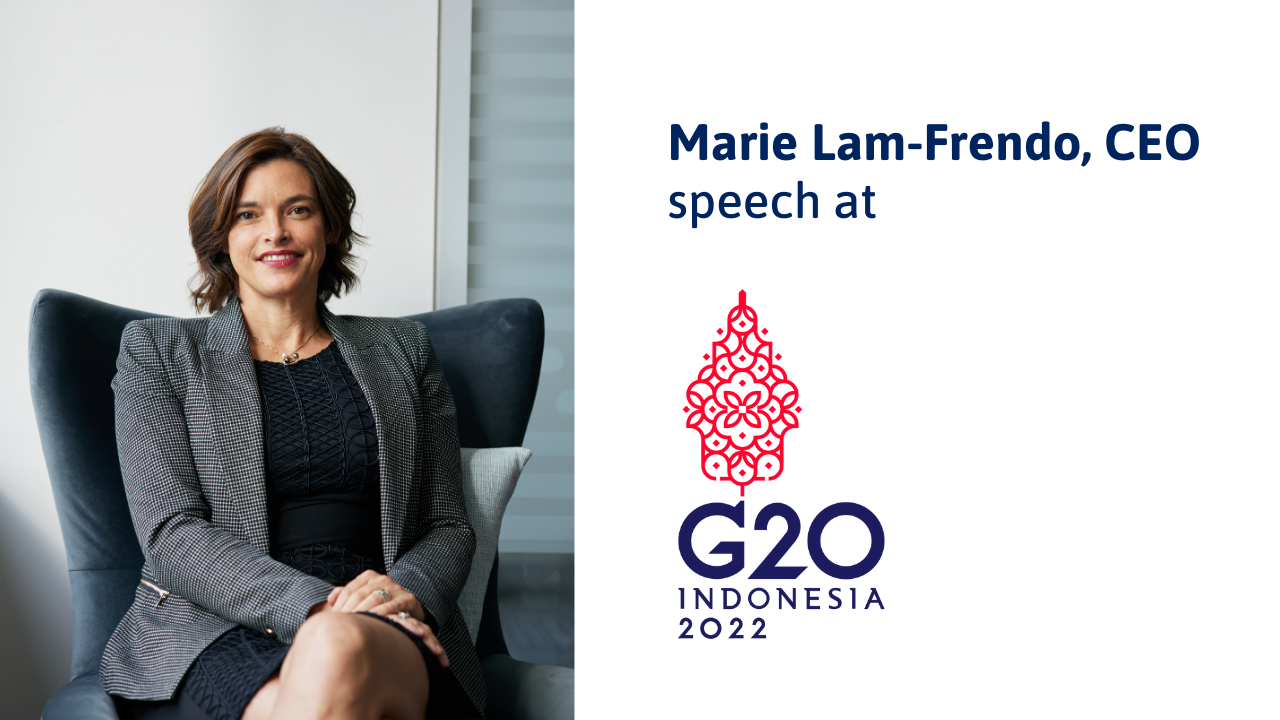51 results found
Featured results


More results
This report on Infrastructure Transition Pathways, prepared for the G20, examines what governments are doing to incorporate infrastructure transition pathways into their infrastructure plans.

The GI Hub’s CEO Marie Lam-Frendo and Director of Engagement, Rory are on the ground at COP27, read about their week ahead.
At COP27 this week, GI Hub CEO, Marie Lam-Frendo moderated a panel session on Accelerating, Targeting, and Blending Sustainable Investment at the Sustainable Markets Initiative Terra Carta Action Forum.
The current energy crisis underscores the urgency to scale up green infrastructure investment.
This report outlines an approach to country platforms to help channel technical assistance and public and private finance to emerging and developing countries in order to support the achievement of net zero targets.



EBRD’s Director of Sustainable Infrastructure Policy and Project Preparation Matthew Jordan-Tank shares insights on how Egypt’s 6th of October Dry Port supports sustainable infrastructure development.
Watch our CEO Marie Lam-Frendo explore solutions and challenges for decarbonising the transport sector in the latest episode of CNBC's 'Greenprint for a Sustainable Future’ series.
Post-COP15, GI Hub's Strategic Adviser Denis Crevier explores some meaningful outcomes for biodiversity and its influence on infrastructure.
The InterAmerican Development Bank´s Sustainable Infrastructure Framework aims to help foster shared understanding of the key dimensions and attributes of sustainable infrastructure. The IDB Framework was adapted to Mexico after a thorough analysis of Mexico’s national development strategy and infrastructure investment priorities, in close collaboration with relevant stakeholders.
This week the Australian British Chamber of Commerce, the GI Hub and KPMG co-hosted an intimate infrastructure roundtable with the Lord Mayor of the City of London and senior Australian private sector participants, industry associations, think tanks, government, and infrastructure agencies.

Sustainable infrastructure is infrastructure that delivers long-term economic, social, and environmental (ESE) benefits.


At last week’s meetings of the G20 Finance Ministers in Washington DC in the margins of the World Bank / IMF Spring Meetings, conversations continued to drive toward action on debt, reform of multilateral institutions, and sustainable finance and investment for the climate transition.
Today the GI Hub has released Transition Pathways to Sustainable Infrastructure, a new resource to help governments shape future infrastructure to meet global climate targets and the UN Sustainable Development Goals with practical, accessible research and open consultations.
With infrastructure responsible for 79% of global GHGs, JETPs have great potential to rebuild trust among stakeholders and help mobilise private climate finance to support the climate transition and sustainable infrastructure development broadly. The JETP platform offers a valuable sandbox to co-create and validate new approaches and innovations while firming up political will
McKinsey interviews our CEO, Marie Lam-Frendo about key strategies to help infrastructure leaders to attract private investment and meet net zero goals
Interrelated challenges are common bottlenecks in the planning process for linear infrastructure designed to address climate change. This article explores how the Linear Infrastructure Planning Panel is enabling InfraTech for accessible decisionmaking.
The carbon finance market is evolving rapidly but is fragmented and complex. With project and political risks affecting the private sector’s willingness to enter new carbon markets, what can governments of developing countries do to scale up participation?
The GI Hub has formed a strategic partnership with the Sustainable Markets Initiative Blended Finance Task Force, to identify solutions that scale private investment and mobilise capital to accelerate the transition to net zero.


 Transition Pathways
Transition Pathways
















